We are proud to celebrate the accomplishments of our students involved in the WINGS (Wireless & Intelligent Next Gen Systems) program. This innovative research initiative offers students hands-on experience in advanced wireless and intelligent systems, providing mentorship from industry experts and a collaborative environment focused on next-generation technology. Through WINGS, students acquire critical skills, expand their professional networks, and gain practical knowledge that prepares them for impactful careers in engineering and technology.
Ryan Primus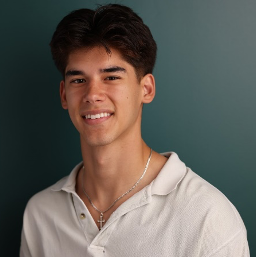
Goshen, NY
Master’s degree in Computer Science, Anticipated May 2025
Internship with ANDRO, recipient of Chancellor’s Award for Student Excellence
How did you get into WINGS?
- I took a class on AI from an engineering perspective with Dr. Arjun Singh. I liked the class and asked about the prospect of doing a research assistantship with Dr. Singh. Then, I also decided to do the class project on THz communications. This was challenging because as a CS student, I didn't have a lot of familiarity with the topic of wireless communications, but over time, I got to understand the basics.
- Then, in Feb 2024, I officially joined the team, having successfully completed my Bachelor's degree in CS in the process.
How are you involved in the WINGS Research Center?
- As of June, I am the first graduate student of WINGS and am working on implementing ML solutions for phase noise and signal propagation. My thesis is also focused on this topic, and I am already publishing my first paper to be presented in December, in Abu Dhabi. I am also planning a more comprehensive ML based paper, which I will be submitting to the 2025 IEEE ICMLCN.
What skills you have developed through your work in WINGS?
- I have been able to develop my ML, professional writing, and most importantly, my critical thinking skills, while at WINGS. The hands-on experience from my time at WINGS has given me a great understanding into the world of electrical engineering.
What resources or experiences have been helpful in your journey with WINGS?
- I am incredibly thankful to have been a member of the CSTEP program at SUNY Poly, their tremendous support during my time with WINGS has helped in more ways than imaginable. A special thanks goes out to Andrew Cotronea at CSTEP as well as Dr. Sen, Dr. Singh, and anyone who has made this journey with me.
Justin Osmond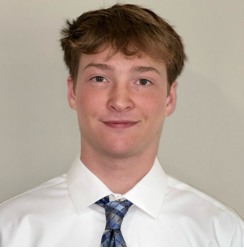
Boonsboro, Maryland
Internship with MITRE
Majoring in Electrical Engineering, Anticipated May 2026
How did you get into WINGS?
- I was introduced to WINGS by Dr. Arjun Singh, and I spent the entire summer working closely with him and the team.
How are you involved in the WINGS Research Center?
- I collect and process data by performing channel sounding in various environments under different conditions. In addition, I characterize channel metrics to better understand THz radiation propagation in the near field, utilizing MATLAB scripts to process and analyze the data. I also contribute to the design of an axicon, which aims to address the design of Bessel beams for near-field THz communications.
What skills you have developed through your work in WINGS?
- Through my work in WINGS, I've developed a wide range of skills. These include signal processing, near-field analysis, link budget analysis, and wavefront and optical design. I’ve also gained hands-on experience with oscilloscopes, signal generators, and arbitrary waveform generators (AWGs).
What resources or experiences have been helpful in your journey with WINGS?
- The mentorship I’ve received has been incredibly valuable. Alongside that, the collaborative and supportive team environment within WINGS has played a significant role in my personal and professional development.
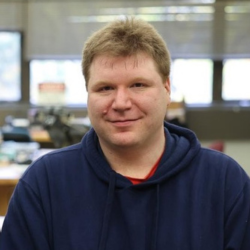
Michael Wilder
From Gloversville, NY
Majoring in Electrical and Computer Engineering, Anticipated Fall 2024
How did you get into WINGS (Wireless and Intelligent Next Generation Systems)?
I got into WINGS after taking Signal Processing with Dr. Medley, where I created a MATLAB program that converted messages into bits, represented them with chirps, and recovered the original message from noise. At the same time, I was in Software Defined Radio with Dr. Singh, who encouraged me to apply for the Summer Undergraduate Research Program (SURP). I was accepted, which led to publication and a conference presentation in Baltimore. I later continued research with Dr. Sen, expanding my knowledge of communication systems.
Any skills you have developed through your work in WINGS?
Through my work in WINGS, I have developed skills in signal processing and MATLAB programming.
Any resources or experiences that have been helpful in your journey with WINGS?
The guidance of professors Dr. Medley, Dr. Singh, and Dr. Sen has been impactful. Additionally, the strong foundation in signal processing, programming, and problem-solving that I gained from my coursework and research has been essential to my development.
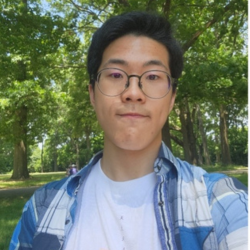 Pin Chi Liang
Pin Chi Liang
Queens, New York
Summer 2025 Internship with AFRL
Majoring in Electrical Computer Engineering, Anticipated May 2027
How did you get into WINGS?
I got into the WINGS program this summer through a recommendation by my professor.
How are you involved in the WINGS Research Center?
I am currently studying Terahertz communication, and my main focus is on helping with research in the modulation field.
What skills have you developed through your work in WINGS?
This semester, I have gained skills in MATLAB and have learned a lot about wireless communication—specifically, how current wireless communication systems work, the challenges in advancing these systems, and potential improvements.
What resources or experiences have been helpful in your journey with WINGS?
My professors have been incredibly helpful in my journey with WINGS, as they are always available to assist when I encounter difficulties in understanding the material during my research.
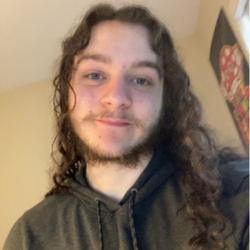
David Stark
Pound Ridge, New York
Summer 2025 Internship with ANDRO
Majoring in Electrical and Computer Engineering, Anticipated 2026
How did you get into WINGS?
It started freshman year when one of my friends convinced me to join an IEEE project on THz antennas, and I was hooked.
How are you involved in the WINGS Research Center?
I am currently a research assistant for Professor Sen, where I have been working on performing multipath channel sounding for Terahertz communication. I have also contributed by working on MATLAB scripts to process the data we collect.
What skills have you developed through your work in WINGS?
I have learned how to use MATLAB for communication purposes, and more importantly, I’ve gained hands-on experience operating a testbed capable of communicating at frequencies of up to 330 GHz.
What resources or experiences have been helpful in your journey with WINGS?
MATLAB has been a great resource in helping me further understand the intricacies of the channel at Terahertz frequencies.
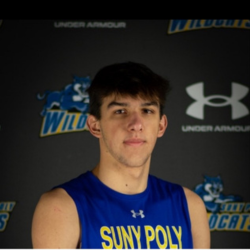 Peter Gottler
Peter Gottler
Buffalo, NY
Majoring in Network and Computer Security, Anticipated May 2026
How did you get into WINGS?
My roommate helped me get into contact with Dr. Singh about a potential role on the WINGS team. I met with him about a week later to discuss what the team does and how I would fit into the mix. It worked out, and I got on board just before the start of November.
How are you involved in the WINGS Research Center?
I am the student assistant manager for the WINGS website. I am responsible for ensuring that new information is promptly added to the webpage, keeping everyone up to date on what is going on within the research group.
What skills have you developed through your work in WINGS?
A skill I have developed through working in WINGS has been working collaboratively. I have become more efficient at communicating with other team members, ensuring that no one is left in the dark about what’s going on.
What resources or experiences have been helpful in your journey with WINGS?
The connections I’ve made, both with team members and professors, have been incredibly helpful. Everyone has a network that can be beneficial throughout your time in school and afterwards in the workforce.

